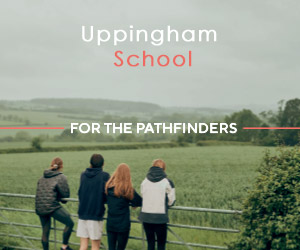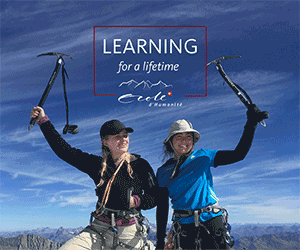
How a human touch makes the best online learning
26.03.23Scotland’s e-Sgoil (e-School) aims to harness the power of technology without losing sight of the importance of community and positive relationships, says Simon Hall
What are the key ingredients of the high-quality, interactive online learning that we have found youngsters to value highly?
As part of the National e-Learning Offer in Scotland, e-Sgoil delivers a free programme of live study support webinars for senior-phase learners, giving us crucial insight into what works with learners.
The programme divides into two elements: term-time evening webinars and Easter daytime webinars. The webinar programme was developed during the Covid pandemic and is now well-established among young people working towards Scottish Qualifications Authority (SQA) qualifications.
Some 50 evening webinars run each week during term time, with 3,683 learners from 295 schools registered, drawn from every local authority area in Scotland. There will be 80 Easter daytime webinar groups in 2023, covering 30 subjects. Some 1,169 learner evaluations were gathered in last year’s Easter programme, and the “overall quality of webinar experience” was rated at an average of 4.5 out of 5.
So, what did youngsters value highly? On the one hand, there are the digital tools and levers: the exciting “shiny things”, which, in the right hands, can really engage and motivate learners. Microsoft Teams will be familiar by now to many practitioners, and we use it within the “walled garden” of Glow - a national “digital environment to support learning” in Scotland - to deliver the webinars.
Making the most of online learning
Teams is a great teaching tool. We can deliver to large groups of youngsters joining from Shetland to Selkirk in the Scottish Borders, and anywhere in between. Geographical equity of access is built in. Some local authorities make more use of Google Classroom than they do of Microsoft Teams. In our experience, though, learners are flexible and adaptable, finding both Classroom and Teams intuitive and easy to get used to. Every youngster in Scotland has a Glow account and they can ask their school for a note of their credentials before registering via the e-Sgoil website to join their chosen webinars.
Once onboard, learners experience a range of interactive teaching approaches. Webinar teachers incorporate text, diagrams, photographs, MP3 files and more. Carefully selected educational video content can be inserted effortlessly into a presentation. I watched, fascinated, last week as physics teacher Gail MacVicar delivered a webinar using an adjustable animated tool, complete with audio effects, to illustrate the relationship between the frequency and velocity of sound waves.
While the graphics in the webinars are engaging, the opportunities for learner interaction are equally exciting. There’s a great sense of anticipation when the teacher sets up a “chat fall” (asking an open question and instructing learners to type their responses, but allowing thinking time and waiting until everyone is ready to click “send” at the same time). It’s very engaging and stimulating to read everyone else’s responses as they pop up in the chat bar. Other tools such as Jamboard or Mentimeter allow for anonymous responses (ideal for coaxing more introverted youngsters into participation) or interactive voting to keep everyone actively involved.
Ultimately, however, it’s the human touch that makes for the very best online learning experience. Typically, one young person recently fed back praise about the quality of the learning but was equally keen to stress that the teachers were “very welcoming and inclusive”.
Educationalist Michael Fullan has written recently of the importance of “social intelligence” versus “machine intelligence”, and there is no doubt that e-Sgoil webinar participants really enjoy the sense of an online learning community - but also the positive relationships that develop between learners and teachers.
By Simon Hall (digital depute head at e-Sgoil and the Northern Alliance RIC (regional improvement collaborative) in Scotland.
COPYRIGHT © Abode2 2012-2025












